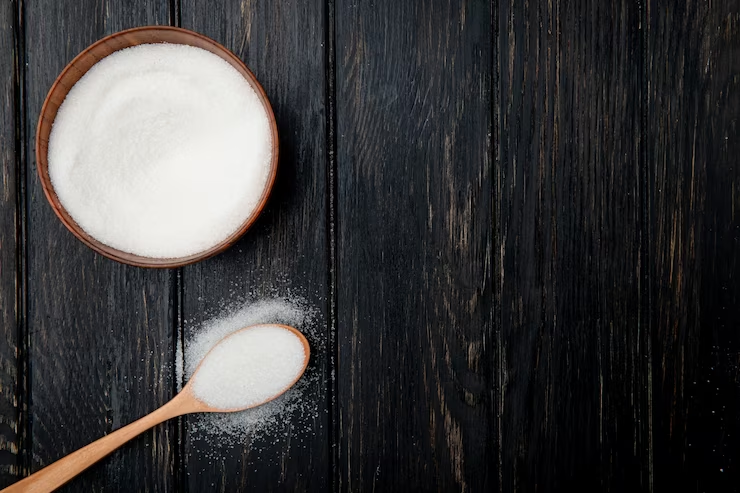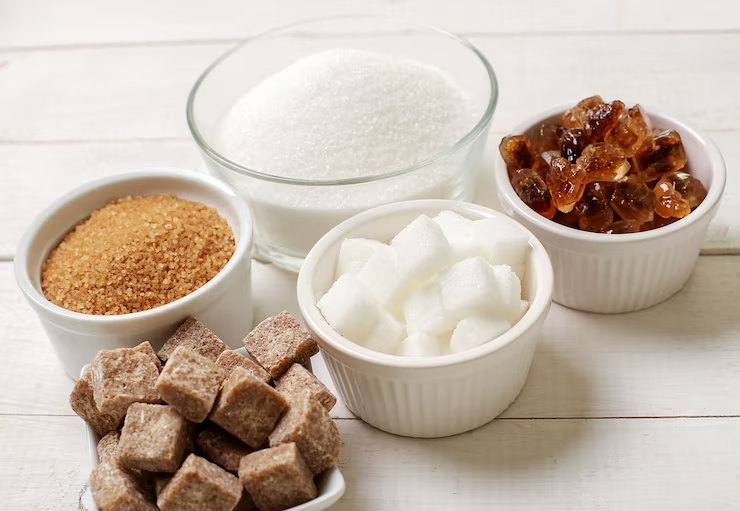In the quest for healthier alternatives to sugar, the showdown between stevia and sucralose has captivated the taste buds of health enthusiasts, diabetics, and those embracing the keto lifestyle. Beyond their shared objective of sweetening, these sugar substitutes possess unique qualities that have sparked a hot debate. Join us as we embark on a journey of exploration and discovery, delving into the intricate differences between stevia and sucralose and uncovering their distinct benefits across health, diabetes management, and ketogenic diets.
At the heart of the stevia vs sucralose debate lies their fundamental composition and origins. Stevia, a natural sweetener derived from the leaves of the Stevia rebaudiana plant, offers an intriguing blend of sweetness and minimal calories owing to its non-caloric nature. On the other hand, sucralose, a chemically altered derivative of real sugar, boasts an astonishing sweetness without the caloric load. As we delve deeper into their molecular structures and manufacturing processes, a clearer understanding of their unique attributes emerges.
Stevia vs Sucralose for Health
The health implications of these sweeteners extend far beyond taste. Stevia, celebrated for its natural origin, delivers sweetness while exerting minimal impact on blood sugar levels. Its potential to be a diabetic-friendly option and its use as a tool in weight management cannot be overlooked. On the opposite end, sucralose’s low glycemic index and near-zero calorie content have garnered attention from the health-conscious community. It finds its place in a spectrum of dietary choices, catering to those seeking to reduce caloric intake while indulging in sweetness.
Stevia vs Sucralose for Diabetics
For individuals grappling with diabetes, the choice between stevia and sucralose extends beyond taste preference. Stevia, with its minimal effect on blood sugar levels, presents a compelling alternative to conventional sugar for those looking to manage glucose more effectively. Contrarily, sucralose’s non-nutritive nature and lack of impact on insulin make it a viable sweetening option for diabetics. The intricate interplay between these sweeteners and blood sugar regulation is an important consideration for individuals managing diabetes.
Stevia vs Sucralose in Keto
As the popularity of the ketogenic diet surges, the stevia vs sucralose debate takes on an exciting twist. Stevia’s natural roots and insignificant impact on blood sugar align well with keto principles, allowing individuals to maintain ketosis without compromising on sweetness. In contrast, sucralose’s zero-carb content and potent sweetness render it a valuable tool for satisfying sweet cravings while adhering to a low-carb lifestyle. The battle for supremacy in the keto realm is truly a matter of metabolic dynamics and taste preference.
Beyond the Taste: The Stevia Advantage
While both stevia and sucralose provide a tantalizing sweet sensation, it’s the additional benefits of stevia that often tip the scales in its favor. Stevia is renowned for its potential to act as an antioxidant, combating oxidative stress and inflammation within the body. This natural wonder also boasts potential blood pressure-lowering effects, making it an enticing option for those conscious of cardiovascular health. Furthermore, some studies hint at stevia’s ability to support insulin sensitivity, potentially aiding in diabetes management beyond its low glycemic impact.
Sucralose, on the other hand, offers unique advantages that cater to various lifestyles. Its heat stability makes it a fantastic choice for cooking and baking, allowing you to enjoy your favorite treats without the added sugars. Sucralose’s virtually calorie-free nature contributes to weight management goals, as it doesn’t contribute significantly to your daily caloric intake. This makes it a valuable tool for those seeking to shed excess pounds or maintain a healthy weight.
Stevia vs Sucralose: A Diabetic’s Dilemma
For individuals navigating the complex landscape of diabetes, the stevia vs sucralose debate takes on added significance. Stevia’s glycemic neutrality and potential to enhance insulin sensitivity position it as a compelling choice for diabetics. Incorporating stevia into your diet could assist in managing blood sugar levels more effectively, reducing the risk of dangerous spikes. However, moderation remains key, as even though stevia doesn’t impact blood sugar, consuming excessive amounts may not be advisable.
Sucralose, with its non-nutritive attributes, can be a suitable companion for diabetics aiming to indulge in sweetness without causing significant fluctuations in blood sugar. As always, consulting a healthcare professional before making any major dietary changes is crucial, especially for those with diabetes.
A Sweet Victory for Keto Enthusiasts

The rise of the ketogenic diet has led to an increased demand for sugar substitutes that align with its low-carb principles. Stevia shines in this realm, as its natural origin and negligible impact on blood sugar make it an ideal sweetening agent for keto-friendly recipes. Whether you’re whipping up a batch of keto brownies or enhancing your morning coffee, stevia can be a reliable partner on your ketogenic journey.
Sucralose’s zero-carb content is a notable contender in the keto world as well. Its versatility in both cold and hot dishes, coupled with its potent sweetness, can add that touch of indulgence to your keto treats without interfering with your carb limits.
Sweetening Wisely: Tips for Optimal Health
As you navigate the stevia vs sucralose dilemma, keep these tips in mind:
- Moderation Matters: While these sweeteners offer advantages, excessive consumption should be avoided. Strive for a balanced approach to sweetness in your diet;
- Read Labels: When purchasing products that claim to use stevia or sucralose, read the labels carefully. Some products may contain fillers or other additives that could affect their health benefits;
- Individual Sensitivity: Remember that individual responses can vary. Some people may experience digestive discomfort with one sweetener over the other;
- Stay Hydrated: Both stevia and sucralose are often used in beverages. Remember to stay hydrated with water as your primary beverage choice.
Conclusion
In the grand clash of stevia vs sucralose, no clear victor emerges as the ultimate sweetener. Rather, these contenders each bring a unique set of attributes to the table, catering to a myriad of preferences and health objectives. As you embark on your journey towards balanced indulgence, armed with the knowledge of their differences, delve into the world of these sweet substitutes with confidence.
Whether you lean towards stevia’s natural touch, sucralose’s cooking convenience, or their shared potential to transform your approach to sweetness, the choice is yours to savor.
